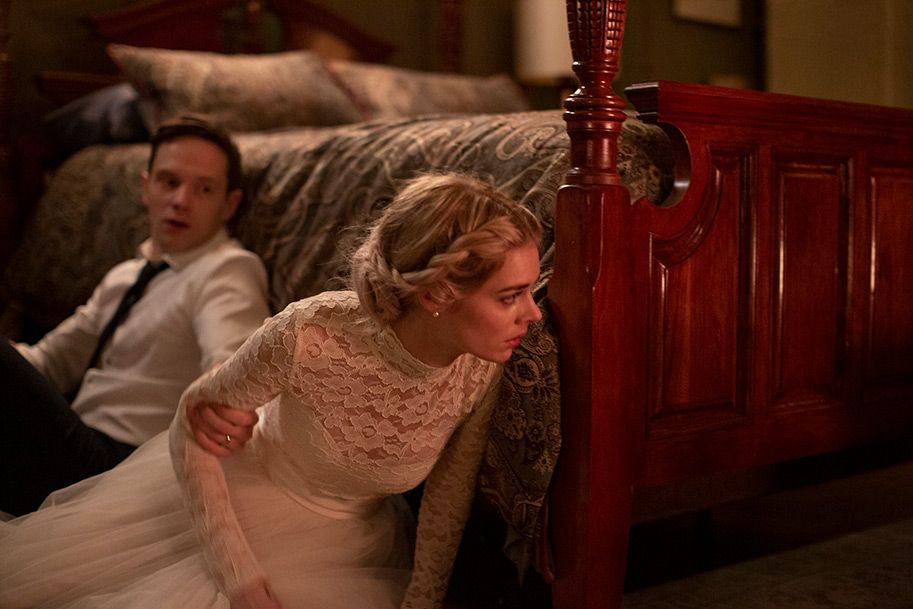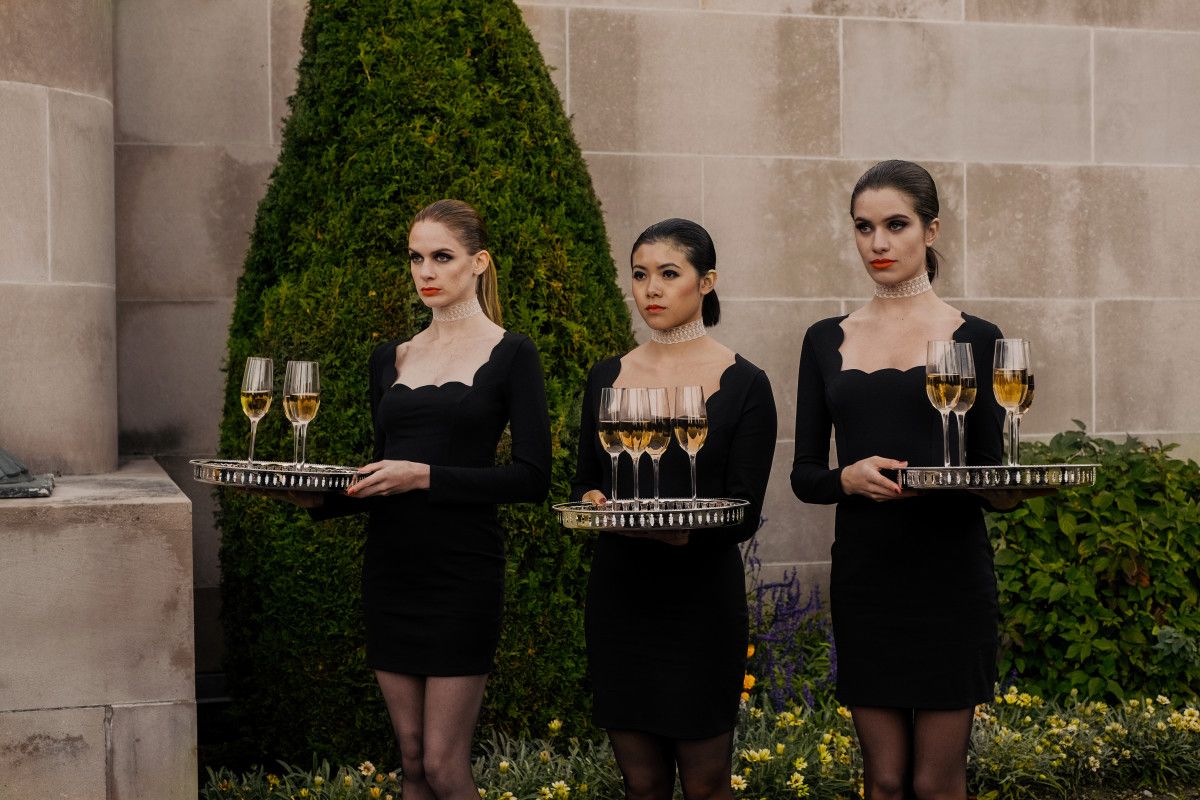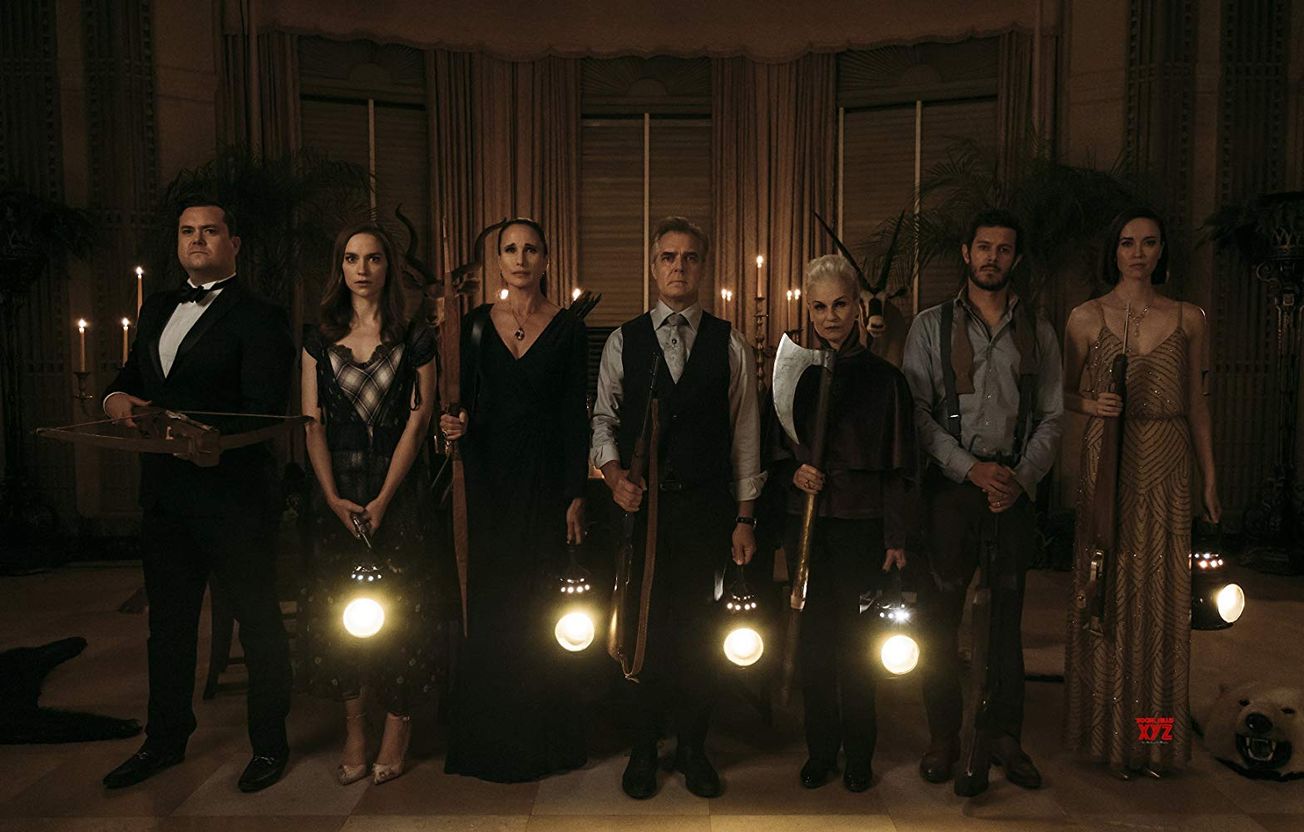By Aline Downey, 2nd Year English
‘F*cking rich people!’ Bellows Samara Weaving’s wide-eyed protagonist, her designer wedding gown covered in blood. This moment, in all its macabre absurdity, overt politicism and gleefully unsubtle presentation, is Ready or Not (2019) in a nutshell.
The thriller is an enjoyable mess and co-directors Matt Bettinelli-Olpin and Tyler Gillett clearly relish executing their ridiculous, wink-wink premise: after marrying into a grossly wealthy family that made its millions in the board game industry, Grace (Weaving) must survive a night of lethal hide-and-seek. What follows is a rampaging, self-satisfied, satirical romp with a hefty fake-blood budget and something important to say – though it seems confused on exactly how to say it.
Screenwriters Guy Busick and R. Christopher Murphy eek out every laugh they can by repeatedly contrasting the ordinary with the horrific, but these jokes have only so much mileage. Still, the cast is so confident and vibrant that it’s simply fun to watch them bounce off one another.
Ready. Aim. Fire. #ReadyorNotMovie, now playing in theaters everywhere. Get tickets: https://t.co/sUyBp74jTK pic.twitter.com/8PgX0K09mi
— Ready or Not (@Readyornotfilm) September 6, 2019
Although the marketing team seemed unwilling to show it, the Le Domas family is the star of the show, the unit collectively functioning as co-protagonist to Weaving. Their hysterical banter and screwball antics seem ripped from a sitcom – they are It’s Always Sunny in Philadelphia (2005-) by way of The Addams Family (1964-66). But as entertaining as it is to watch Henry Czerny lose his marbles on a superficial level, it’s hard not to feel that this characterisation of the villains undermines the film on a fundamental one.
It wants to be schlocky chaos and serious commentary at the same time, but both elements suffer.
The anti-capitalist satire lacks teeth because while the Le Domas’ are bumbling, cruel, incompetent rich people replete with every stereotypical vice (cocaine, live-in stripper, excessively decked-out music room), the script is determined to make them loveable, or at least cutesy.
Make no mistake, Ready or Not is attempting an anti-capitalist satire. It’s a movie where characters repeatedly say things to the effect of ‘rich people are terrible and vain’ out loud. Elements work, such as cinematographer Brett Jutkiewicz’s decision to clock the lavish setting in warm, obscuring tones, which helps to avoid the overplayed fetishization of wealth and allows us to focus on the ridiculousness of the characters.

However, the script compares to a friend’s well-intentioned, unplanned political rant. If the evil elite are loveable and even nuanced – one is particularly sympathetic – with, as it turns out, a rationale for their murderous sport, they become less and less of a stand-in for the class they represent. Does it tell us that ‘the super-rich are evil’ or ‘some super-rich are evil, when they have a reason’? Does that matter?
It’s hard not to feel that this characterisation of the villains undermines the film on a fundamental one.
Maybe it’s as simple as ‘laughing at rich idiots is fun’ – and the film succeeds in this. The issue arises, I think, out of the film’s cognitive dissonance. It wants to be schlocky chaos and serious commentary at the same time, but both elements suffer.
The rule of ‘show, don’t tell’ is not applicable in Ready or Not. There’s a tangible element of action-girl-power that signposts itself repeatedly, but works despite its obviousness. Weaving – who gives a powerful, gritty performance as Grace – is never seen in anything but costume designer Avery Plewes’ beautiful lace wedding dress and the image of it, ripped and soaked in blood, is potently symbolic in a B-movie kind of way.

There comes a moment when Weaving is shown standing resolute, brandishing an antique rifle and kitted out in tatty Converses like the edgy girl at a Year 11 prom. This moment is part of an overarching pattern where the film self-consciously references its existence as a theatrical product, not so much escapism as exercise in genre.
Ultimately, Ready or Not is overambitious, overly obvious and slightly inconsistent in its overt political subtext, but it is a good time. Bombastic set-pieces and an ensemble with strong comic timing make it worthwhile if that’s what you’re looking for, though maybe just wait until it’s available for streaming.
Featured: IMDb / Mythology Entertainment
Is Ready or Not effective satire, or just a joke?









